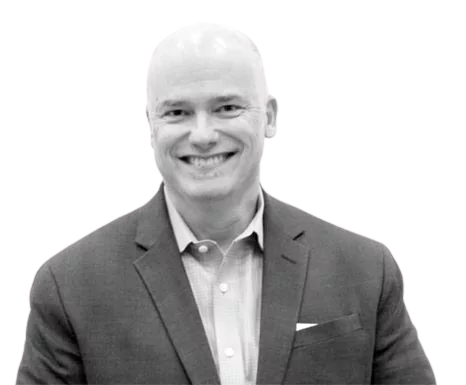Man, I feel old when I start referring to the next generation of employees in the distribution world as “kids”. But let face facts, it has been over 25 years since I started working in the warehouse of my family distribution business. Things have changed. The way the job is done has changed. Much to the consternation of many warehouse managers, the behavior of the entry level employee has changed.
Over the last year, I have been teaching a warehouse operations course sponsored by the American Supply Association. We have hit cities all around the United States. Many of the participants manage distribution warehouses or some aspect of the warehouse function. In the beginning of the course, I invite the participants to share their biggest frustration with one caveat – if their biggest frustration is sitting in the room with us, perhaps they should go on to the next biggest frustration. The most common response is some variation on the theme of trying to manage this next generation of employee. It is usually followed by some declaration like “In my day”¦” In most privately held distribution companies, new employees start in the warehouse. Since promotion from within tends to be the most common mode of operation, the burden of cultural assimilation to our company rests squarely on the shoulders of the warehouse manager. Have we given them the tools to facilitate this responsibility?
The most frustrating thing for most older managers is that their newer employees think differently about work than they do. Leaders often expect new employees to learn the same way that they did. They expect new employees to have the same work ethic that was instilled by their parents, coaches or mentors. Managers often look at this new generation as lazy or lacking in discipline. While some of it may be true, I would like to make an argument to the contrary. I believe that the laziness is actually coming from the part of the manager, not the employee. Managers have become so focused on the way they were taught, that they have not taken the time to understand the motivations and influences that have shaped this new crop of distribution professionals.
Several years ago, I was tasked with managing a regional facility in Denver. I oversaw about 20 employees ranging in age from 19 to 56. I found myself constantly getting frustrated trying to shape this team into a cohesive unit. They just wouldn’t follow procedures. I would fire off emails and memos expecting the pen to be mightier than the sword. I found it difficult to get anything done because people wanted to drop by my office all day to discuss problems we had gone over the week earlier. Couldn’t they just send me an email? Then there would be a record of the question and the subsequent answer. It made a whole lot of sense to me, but for some reason these folks wanted to talk it out. In one of my less than stellar managerial moments, I unloaded on my counter manager and bellowed “Didn’t you get my email??” He said, “Oh, I only look at email once a week.” After I picked my jaw up off the ground, I was struck with a monumental thought – he doesn’t work the same way I do.
After this enlightening encounter, I started to look for answers on how to understand the people I was supposed to manage. I stumbled across the subject of generational motivation and more specifically the different generations that make up the workplace. I bought the book, Connecting Generations, by Claire Raines and read it cover to cover in a weekend. I still recommend this book to a majority of my speaking audiences. It changed me as a manager, a salesman and as a person. This book talks about the four generations of employees in our workforce: the Traditionals, the Boomers, Generation X and the Millennials. I was floored when I read the section on Generation X. She nailed my personality down to a tee. In her book, she explained some of the influential moments that shaped certain behaviors. She had me at – “they usually are unimpressed with authority figures”.
More importantly, this study of generational differences gave me some insight into working with the different people I was charged with managing. No longer did one size fit all. I was able to tailor my approach based on the generational cues of the employee. I believe that a great deal of frustration expressed by our warehouse management could be alleviated by just taking the time to learn about what makes the Millennial Generation employee tick.
In doing a little research for this article, I went back to the generationsatwork.com website. This is the website where Claire Raines and her team present articles and information on the subject. In an article titled Millennials at Work, Claire Raines and Arleen Arnsparger outline several keys to understanding and working with this generation.
Some of the more interesting pieces of the article were some of the early influences that shaped behavior. These kids were extremely busy as children. They were loaded with extra curricular activities. They had very tight schedules and parents who managed their time for them. Parents of this generation were often referred to as “helicopter” parents because they would hover over their children. From a managerial perspective, we should recognize that this generation tends to be used to a great deal of structure. They will probably have some challenge around self directed assignments early on. Since they were used to a very strong parental influence, managers will need to provide constant feedback and direction. They respond well to a strong parent-like mentor in the workplace.
Communication will be a challenge. This generation grew up communicating through electronic devices. Personal interaction will be difficult at first. Extended group meetings will be uncomfortable, but there is a silver lining. This generation was heavily influenced by humanitarian efforts, such as Hurricane Katrina, and will thrive when asked to work in a team environment.
This group of new employees is highly ethical. They grew up in a time where corporate greed was coming to a head and the sins of Enron and Worldcomm were splashed across the news. They will respond to leaders who have integrity and view business transactions as win-win.
I have just given you a taste of the conclusions that can be drawn from understanding generational differences. I hope you choose to dig deeper. Are these generational characterizations going to be perfect? Of course not, there will always be exceptions to the rule. When you get into the study of generational influences, look for the similarities to your current employees. Don’t dwell on the differences. Remember, these kids aren’t wrong, they just view the world with a slightly different set of glasses. Good luck.


